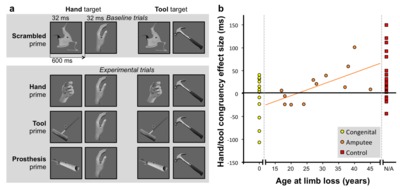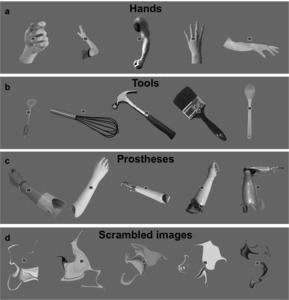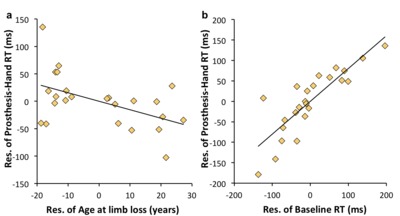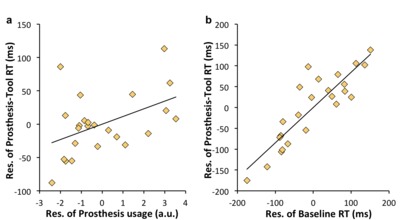van den Heiligenberg, FMZ;
Yeung, N;
Brugger, P;
Culham, JC;
Makin, TR;
(2017)
Adaptable Categorization of Hands and Tools in Prosthesis Users.
Psychological Science
, 28
(3)
pp. 395-398.
10.1177/0956797616685869.

Preview |
Text (Article)
Makin_vandenHeiligenberg_MainText_revisions.pdf Download (391kB) | Preview |
Preview |
Text (Supplement)
Makin_vandenHeiligenberg_supp_revisions.pdf - Accepted Version Download (923kB) | Preview |
![[thumbnail of Makin_vandenHeiligenberg_Fig1_1.png]](https://discovery.ucl.ac.uk/1539901/13.hassmallThumbnailVersion/Makin_vandenHeiligenberg_Fig1_1.png)  Preview |
Image
Makin_vandenHeiligenberg_Fig1_1.png - Accepted Version Download (261kB) | Preview |
![[thumbnail of Makin_vandenHeiligenberg_FigS1_2.png]](https://discovery.ucl.ac.uk/1539901/18.hassmallThumbnailVersion/Makin_vandenHeiligenberg_FigS1_2.png)  Preview |
Image
Makin_vandenHeiligenberg_FigS1_2.png - Accepted Version Download (571kB) | Preview |
![[thumbnail of Makin_vandenHeiligenberg_FigS3_3.png]](https://discovery.ucl.ac.uk/1539901/27.hassmallThumbnailVersion/Makin_vandenHeiligenberg_FigS3_3.png)  Preview |
Image
Makin_vandenHeiligenberg_FigS3_3.png - Accepted Version Download (104kB) | Preview |
![[thumbnail of Makin_vandenHeiligenberg_FigS4_4.png]](https://discovery.ucl.ac.uk/1539901/33.hassmallThumbnailVersion/Makin_vandenHeiligenberg_FigS4_4.png)  Preview |
Image
Makin_vandenHeiligenberg_FigS4_4.png - Accepted Version Download (105kB) | Preview |
Abstract
Some theories propose that tools become incorporated into the neural representation of the hands (a process known as tool embodiment; Maravita & Iriki, 2004). Others suggest that conceptual body representation is rigid and that experience with one’s own body is insufficient for adapting bodily cognition, as shown in individuals born without hands (Vannuscorps & Caramazza, 2016) and in amputees with persistent phantom hand representation (Kikkert et al., 2016). How sharp is the conceptual boundary between hands and tools? This question is particularly relevant for individuals who have lost one hand and use prosthetic hands as tools to supplement their missing hand function. Although both congenital one-handers (i.e., amelia patients) and one-handed amputees are encouraged to use prostheses, the former show a greater tendency than the latter to use prosthetic hands in daily tasks (Jang et al., 2011). One-handers have a fully functional remaining hand (allowing them to use handheld tools, etc.), which makes them less likely to show semantic distortions in hand and tool representation. However, their bodies and their interactions with their environment are fundamentally altered by their disability (Makin et al., 2013; Makin, Wilf, Schwartz, & Zohary, 2010). To determine how real-world experience shapes conceptual categorization of hands, tools, and prostheses, we recruited one-handers with congenital or acquired unilateral hand loss to take part in a study involving a priming task. We predicted that one-handers, particularly congenital one-handers, would show more conceptual blurring between hands and tools than control participants would, as a result of less experience with a hand and more reliance on prostheses (which are essentially tools) for typical hand functions. We further predicted that individual differences in prosthesis usage would be reflected in implicit categorization of hands, manual tools, and prostheses.
Archive Staff Only
 |
View Item |


